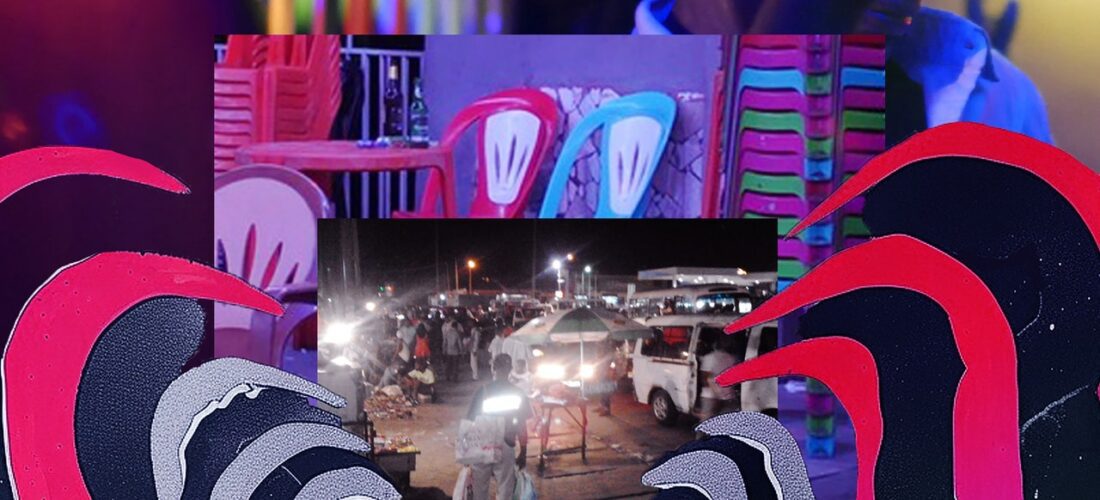Butu
The first sound on KOKOKO!’s Butu is the sound of bustling traffic. It takes about a minute for the outline of the opening song, “Butu Ezo Ya,” to emerge from the hubbub, as siren synths and shouts that could be mistaken for those of drivers and angry pedestrians reveal themselves as the sound of the band and their instruments. Maybe it’s second nature for a group formed in Kinshasa, the most populous French-speaking city in the world, but this ostensible party music suggests an almost Untrue-like level of metropolitan density. Stereogum’s Tom Breihan said that Usher’s “Yeah!” sounds like it’s playing in a club, no matter where you encounter it. I thought something similar while listening to Butu: This music could turn anyplace into a teeming street corner.
KOKOKO! started out as an unconventional quartet making twitchy techno-punk with objects like typewriters and oil barrels—a workaround for the high cost of gear in Kinshasa. Now the duo of Congolese vocalist Makara Bianko and French producer Débruit, the band brings a polyglot perspective to a long lineage of paranoid electronic rock. Both collaborators come from the dance-music universe, yet Bianko’s sweaty shouts and Débruit’s tarnished production impart an unmistakable whiff of punk; fans of electro-punk upstarts Special Interest and Lip Critic will find plenty to love here.
“Butu” is a word for “night” in Lingala, one of several languages used by Bianko on the record. Butu’s aesthetic is often associated with clubs and bars, and producer Débruit—a DJ since the late 2000s—flexes his house muscle here, setting Bianko’s voice against irregular snares and overdriven basslines. Sometimes Bianko sounds like a rapper, as when he slips into an impressive triplet flow on “Telema.” Other times he’s a shirtless hardcore shouter, an arch goth crooner, or a relentless human sample. Cloaked in an evocative swath of reverb, Bianko’s competing layers of shouts and ad-libs create the impression of a small posse rather than a single singer.
The illusion of continuous chatter and conversation is compelling enough even if you don’t understand any of the languages spoken therein. The band performed in Devo-like hazmat suits early on, and like Devo, KOKOKO! like catchphrases that double as party chants and political statements: “Donne-Moi” (“Give Me”) can refer either to the give and take between a performer and the audience or the exploitation of the Congo’s musical and natural resources by foreign intervenors. “Move the world,” Bianko entreats listeners on “Mokili.” Maybe he’s talking about dancing, maybe political involvement—either way, the tumult of humanity KOKOKO! conjure on Butu sounds capable of shaking the planet off its axis.
All products featured on Pitchfork are independently selected by our editors. However, when you buy something through our retail links, we may earn an affiliate commission.
